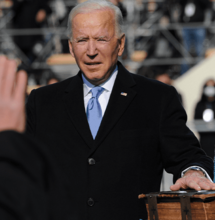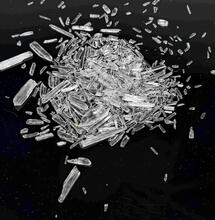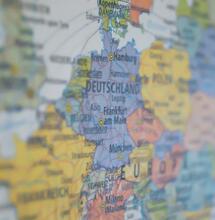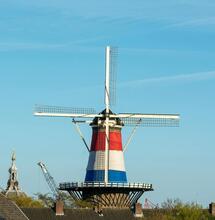Cannabis Quality Control
_19.jpg)
Despite that fact that many people choose to use Cannabis as a natural alternative to other recreational drugs or prescription pharmaceuticals, not much can be done to regulate the quality of said products. Until now, that is.
Recently SSUSA caught up with Wilson Linker of Steep Hill Cannabis Analysis Laboratory. Located in Oakland, CA since 2008, Steep Hill not only tests the local Cannabis supply for mold, pesticides and other toxins but also offers official medical Cannabis laboratory certification, known as SafeCannabisTM. So what sets Steep Hill apart from other testing facilities? "We are dedicated to exploring faster, safer, more efficient methods.
We're the first and most trusted Cannabis analysis lab in California," says Wilson. This lab is also unique in their attention to detail and open-mindedness towards the research they do, both evident in their scientific processes. "We use USP61 method fungal and yeast detection, and we follow the American Herbal Products Association (AHPA) guidelines for contamination levels.
Some California Cannabis labs employ a visible mold inspection; we plate an actual sample, in agar. "Most labs in California use only one method or one instrument; we use GCMS, HPLC - and we are working on new detection instruments. The GC (gas chromatograph) uses heat and gases to analyze the Cannabis. The HPLC (high performance/pressure liquid chromatograph) uses solvents in polarity to separate the cannabinoids." "We use the GC for testing anything that is to be combusted (burned) because it uses heat to analyze the product; anything that is to be applied topically or eaten is run through the HPLC, because it does not destroy - or decarboxylate - the THC acid."
“We are a reference laboratory and we will conduct any analysis the client wants„
Wilson reveals why Steep Hill thoroughly researches multiple methods of consumption: "Basically, we are a reference laboratory and we will conduct any analysis the client wants. We don't prefer any methodology or instrumentation - we just have more instruments than any other lab, and we offer more flexibility." With a burgeoning medical Cannabis industry, CA is the perfect location for Steep Hill, although someday they hope to expand into neighboring pro-weed states - and even internationally. "In California we're lucky to have the Patient Provider system, so we can certify the growers' products (before they go into the dispensary) with our SafeCannabisTM packaging program.
"We are a discreet company, and we understand the need for discretion in the industry. We are more than happy to promote our clients - or not - depending on their desires. They come in and give us their doctors' recommendations; we verify that they are legal to transport Cannabis in California. We complete an analysis for them, and then they take their products to the dispensaries. We'll also take the products straight from the dispensary and do the analysis - we've worked with both models." Steep Hill only requires a small amount of product for testing: two grams of bud, one gram for concentrates (hash/hash oil), and one serving size for edibles.
The product is carefully packaged and sealed with Steep Hill's own technology. "The SafeCannabisTM certification was started in November 2010 and involves a screening for quantitation of cannabinoids, total fungal and yeast count - and an analysis for the major pesticides in the Cannabis industry. "It's also coupled with a standardized packaging program, a Mylar® bag with a nitrogen-enriched environment that keeps the product up to two years.
The bag blocks light; it is Mylar® but it does have a clear window for viewing so it still needs to be stored in a dark place. Light and oxygen degrade THC into CBN. We also equip each grower with sealed sample bags so the purchasers can open and smell a sealed unit without opening the full unit. “Some of the highest [cannabinoid] numbers we see come from the finest organic products„ Organic is a sign of quality in our minds, but we don't take an official stance for or against any sort of cultivation method." Steep Hill has found THC ranging from two- to just above twenty-four percent on the GC.
"The highest THC numbers consistently have come from people who use very high tech - but organic - methods. The actual cannabinoids seem to respond to organic methods, or 'New Age organics', shall we say? You know, this isn't just 'throw it into the dirt in the yard.'" Unlike other Cannabis research facilities worldwide Steep Hill is accessible to the public, creating an unusually large database. Thus far the lab has tested over 20,000 samples (beginning in late 2007) and discovered over 25 strains of high CBD (cannabidiol) Cannabis.
The folks at Steep Hill also seize opportunities to maintain a proactive, visual role in their local community. "We try to get a booth at every major event. We do community clean-ups - we cleaned up a San Jose park with a group of our clients and patients recently, as a community project. "We test for all the High Times Cannabis Cups - we're the official tester - and we're going to continue to do that." This means that if you visit the Cup in Amsterdam this November, you might get to meet the team. So growers, you've been warned: let's keep the green clean from now on, okay?
Finally, after all of these years, conscientious Cannabis consumers (in CA, at least) have access to people who will happily test their products for signs of either quality or contamination. "'True activism is a science' is one of the things we say here," Wilson informs me, "and true activism is self-regulation. What we do is an extended form of activism; we believe that regulating this industry is going to speed up the process towards legalization and give more people access to this wonderful plant." Photos courtesy of Steep Hill Lab www.steephilllab.com



